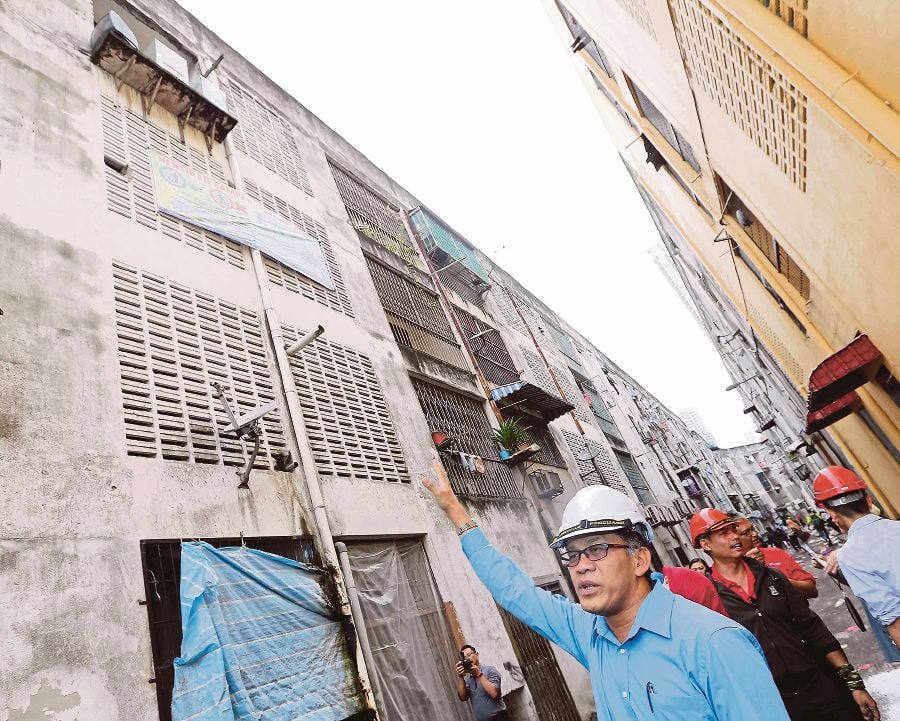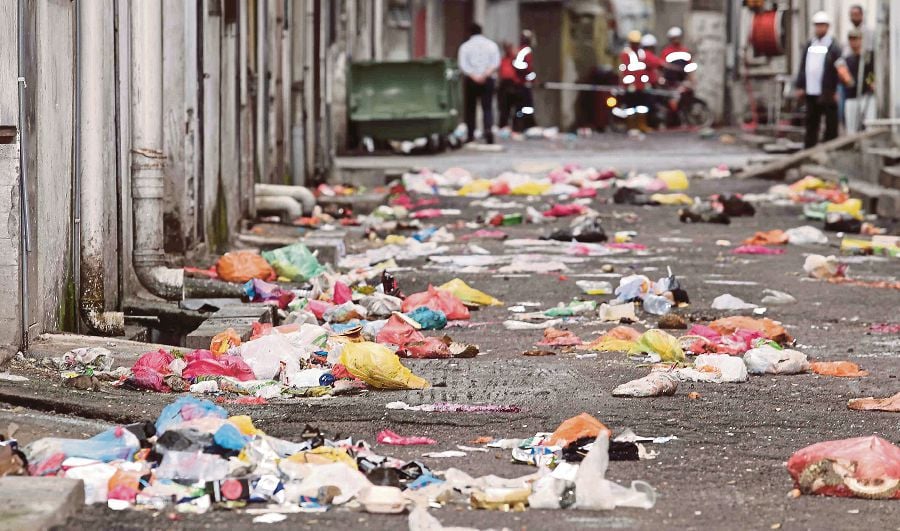THE foul smell from piles of rubbish dumped at the back alleys of several shophouses in Kuala Lumpur have raised public concern.
Apart from attracting rodents and cockroaches, people have expressed concern about safety, as some residents tend to throw their household rubbish out of the balconies and windows of their shophouses.
What is most shocking is that some of these “flying rubbish” are heavy items, such as furniture, and sharp objects including mirrors or durian skin, which could injure people.
A visit to one of the shophouses in Jalan Semilang in Taman Tenaga, Cheras, revealed that many residents fear walking in the back alleys due to the rubbish thrown out of some premises.
Ali Ahmad, who works at a grocery store not far from the shophouses, said people avoided the back alley, which stretches about 542m, for fear of being struck by “flying rubbish”.
“On most occasions, you may find typical household rubbish, such as dirty diapers and leftovers.
“On rare days, there will be things like broken mirrors or television sets.
“You can never tell what you will find at the back alley of the shophouses.
“It’s like a minefield of disgusting and rotten rubbish.
“I fear that people will one day be injured from the rubbish, especially if they were struck by heavy or dangerous items,” said Ali, who urged the authorities to combat the issue.

ACTIONLINE:
Waste management company Alam Flora Sdn Bhd said there was a need to raise awareness and educate residents about cleanliness and the correct practices of household waste disposal.
Alam Flora chief executive officer Datuk Mohd Zain Hassan said the problem of “flying rubbish”, where residents indiscriminately threw out rubbish from their balconies and windows, was apparent in neighbourhoods where the majority of residents were foreign workers or immigrants.
“Of course, cases of rubbish being thrown out of balconies and windows occur in low-cost apartments and condominiums as well.
“However, the situation is under control in those premises. The problem is more critical at shophouses, where the majority of residents are foreign workers,” said Zain.
Alam Flora identified 12 critical hotspots of the “flying rubbish” problem in the Kuala Lumpur city centre.
The hotspots are in the back alleys of shophouses in Lorong TAR2, Lorong Haji Taib 2, Lorong Kalong, Lorong Baba in Pudu, Lorong Kancil, Lorong Landak, Jalan Kundur, Jalan Semilang in Taman Tenaga, Jalan Cerapu, and Jalan Manis 3 in Taman Segar.
Zain also said Alam Flora was forced to conduct a cleanup at the back alleys of the shophouses up to three times a day and six times a week due to the large amount of rubbish.
“During a recent cleanup in Jalan Semilang, for instance, our workers collected about two tonnes of rubbish.
“This included about 500kg to 800kg of rubbish on the ground and about 1.5 tonnes of rubbish, which were stuck on the awnings of shophouses,” he said.
Zain said a different approach was required to raise awareness and educate foreign workers on cleanliness and household waste disposal.
“Our efforts include putting up posters and banners and distributing flyers in the area in the languages spoken by the foreign workers, who are mostly from Myanmar and Bangladesh. Some of these litterbugs were Rohingya,” he said.
“We are trying to engage with the owners and tenants of these premises.
“This will allow them to better understand the situation,” he said.
Zain said Alam Flora was willing to cooperate and contribute its expertise should the authorities plan to conduct short courses to raise awareness and educate foreign workers on the issue.





